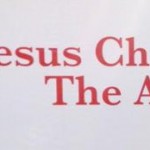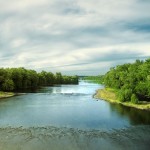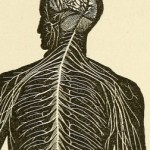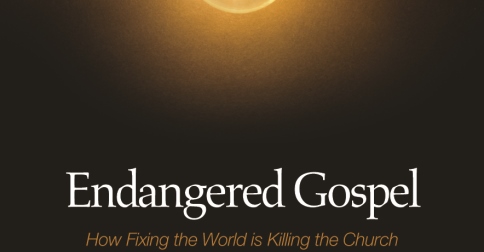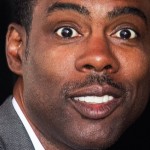Last night, I finally got around to seeing the Noah movie. Darren Aronofsky is probably my favorite movie director (I even wrote about his movie PI in the Slow Church book), and NOAH was one of my most anticipated films of 2014. And, it did not disappoint. NOAH is a story in the tradition of the biblical prophets, with striking relevance for our own times.
*** WARNING: There may be some tiny spoilers here, if you haven’t seen the film
(Although I don’t think reading these spoilers now would ruin the experience of seeing the film).
Last week, I read an article in the New York Times about Paul Kingsnorth and Dark Mountain Project. Though parts of the story tended toward the bizarre, I found compelling the basic idea that ecological crisis was inevitable, and that instead of trying to avert crisis, we should be imagining ways of living that can be sustained even beyond a crisis. Some friends chided me because of Dark Mountain’s apparent hopelessness, but although I struggled to articulate it, I found an odd sort of hope in their philosophy. Watching NOAH, however, helped me understand better why I found Dark Mountain’s work so refreshingly hopeful.
One of the major themes of the movie is the contrast between the way of Cain (i.e., Humanity over the rest of creation, technological society driven by hubris) and the way of Seth (i.e., humanity as part of creation, a way of being that is attentive to non-human life). The nature of the way of Cain — that is to say, the way of empires — is that they collapse, and often the collapse has ramifications for non-human life and the land as well. Not only the empire of Cain, but also Babylon, Greece, Persia, Rome, all these empires collapsed and there was always an ark, a means provided through which civilization could continue, albeit in a dramatically different form. The collapse of the Roman empire, being the closest major collapse of an empire in historical proximity to our times, has been studied in great detail, along with the ways in which human civilization was preserved through the collapse and so-called dark ages that followed (including St. Benedict in Alasdair Macintyre’s After Virtue, and the Irish in Thomas Cahill’s How the Irish Saved Civilization). It seems that too often we’re more interested in preserving our way of life than in imagining new ways of being together with others. Greenwashed consumerism, for instance, is generally more about the basic way of life of Western culture, and less about actually ordering our lives in ways that are in fact more sustainable. When cultures collapse (due to ecological disaster or not), there is always an ark, some relatively small sector of people that persist and make possible new post-collapse forms of civilization. It is in the sovereignty of God and in the reality of God’s providing a way (however narrow), that I want to stake my hope, not in technology or progress or any of the other powers that define empires.
I should add though, that NOAH goes further and reminds us that the dividing line between Seth and Cain is not always the the same as distinguishing those on the ark and those off it. Even when an ark is provided, those who find themselves upon it do not always embody the way of the Creator. (And here I set aside the movie’s storyline about Tubal Cain ending up on the ark, which was bizarre and seemingly more a plot device than to crank up the drama rather than a meaningful facet of the story) More interesting to me were the stories of Ham and Noah himself. Ham, although he was one of the humans on the ark, was driven by his desires to rebel against his father and the way of “salvation” that the ark offered. Noah was so determined to be the God-ordained arbiter of justice that he took on the violence of Cain and came within a hair’s breadth of killing his granddaughter’s. (Remember, this was Noah, who at the beginning of the movie chided his son for needlessly doing violence to a flower by picking it.) Noah’s story reminds us that the line between the way of Cain and the way of Seth runs through our hearts and bodies. Even when we are seeking a different way, the way of of Seth, the way of Jesus, we are very much prone to act in the way of the dominant culture.
I was also struck by the how the key themes of Slow Church — ethics, ecology and economy — were embodied in this telling of the Noah story. It was emphasized over and over that Noah (and most of his family) were fixed on following well in the way of their ancestors, and the way of the Creator. They weren’t interested in being popular or winning many people over to their way, they just sought to be faithful to the way in which they were called. This sort of perseverance is a wonderful embodiment of the virtues that we describe as ethics. The way of Seth that Noah (usually) sought to follow in, was one that was attentive to and at peace with the rest of creation. This sort of ecological attentiveness is perhaps most strongly seen in contrast to Tubal Cain’s monologue spoken to Ham aboard the ark, in which Tubal Cain emphasizes that creation was made to serve humanity and humans were ordered to dominate the creation. Noah and his family lived within the ecology of the created order. I was most struck though by Noah’s family’s trust in the abundant economy of God. Yes, there were some creative cinematic ways in which this was depicted, the massive forests that popped up from the planting of the single seed and the imaginative depiction of the Watchers (Nephilim) who stood guard as the family built the ark and awaited the floods, but the point was clear, the family trusted God’s abundant provision in a world devastated by human greed and God did not disappoint.
There’s much in this film that speaks powerfully to our times, and in the very best tradition of biblical storytelling, Aronofsky makes the biblical text come alive in ways that harmonize with the challenges of our day. This film is one well-worth seeing for people who are interested in Slow Church.

